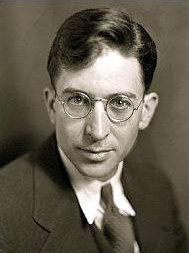Carl Weiss facts for kids
Quick facts for kids
Carl Weiss
|
|
|---|---|
 |
|
| Born |
Carl Austin Weiss
December 6, 1906 Baton Rouge, Louisiana, U.S.
|
| Died | September 8, 1935 (aged 28) Baton Rouge, Louisiana, U.S.
|
| Cause of death | Gunshot wounds |
| Resting place | Exhumed from Roselawn Cemetery in Baton Rouge; remains never returned |
| Alma mater | Louisiana State University |
| Occupation | Physician |
| Known for | Assassination of Huey Long |
| Spouse(s) |
Yvonne Louise Pavy Weiss
(m. 1933) |
| Children | Carl Austin Weiss Jr. |
| Parent(s) | Carl Adam and Viola Maine Weiss |
| Relatives | Benjamin Pavy (father-in-law) Felix Octave Pavy (wife's uncle) |
| Motive | Unclear |
| Details | |
| Victims | Huey Long |
| Date | September 8, 1935 |
| Location(s) | Baton Rouge, Louisiana |
| Weapon | FN Model 1910 |
Carl Austin Weiss Sr. (born December 6, 1906 – died September 8, 1935) was an American doctor. He is known for an event involving U.S. Senator Huey Long at the Louisiana State Capitol on September 8, 1935.
Contents
Carl Weiss's Early Life and Career
Growing Up in Baton Rouge
Carl Weiss was born in Baton Rouge, Louisiana. His father, Carl Adam Weiss, was also a doctor. He was a well-known eye doctor, called an ophthalmologist. Carl's mother was Viola Maine. His family had German, French, and Irish roots.
Education and Medical Training
Carl went to local schools in Baton Rouge. He graduated from St. Vincent's Academy. In 1925, he earned his bachelor's degree from Louisiana State University in Baton Rouge.
After college, Carl studied more in Vienna, Austria. He also worked for a short time at the American Hospital of Paris. He then completed special training, called internships, in Vienna and at Bellevue Hospital in New York City.
In 1932, Carl returned to Baton Rouge. He started working as a doctor with his father. In 1933, he became president of the Louisiana Medical Society. He was also a member of Kiwanis International, a community service group.
The Shooting of Huey Long
On September 8, 1935, an event involving Carl Weiss and Huey Long happened. It took place at the Capitol building in Baton Rouge. At 9:20 p.m., after a new law was passed, Weiss approached Long. This law would have made it harder for Weiss's father-in-law, Judge Benjamin Henry Pavy, to be re-elected.
What Happened That Night
According to the most common story, Carl Weiss fired a single shot. Long was hit. Long's bodyguards then shot at Weiss, killing him. An examination later showed Weiss had been shot many times.
Different Ideas About the Event
Since both Long and Weiss died, there was no trial. Because of this, some people have different ideas about what happened. Some think that Long might have been hit by a bullet from one of his own bodyguards.
Family's Doubts
Carl Weiss's family did not believe he was responsible. His parents said he seemed happy earlier that day. Many people close to the family, and even some politicians, doubted the official story.
Carl Weiss Jr., who was a baby when his father died, strongly disagreed with the official story. In 1993, he said on a TV show that Long was accidentally shot by one of his own bodyguards. Donald Pavy, a doctor and cousin of Weiss's wife, also studied the case. He wrote a book saying that Weiss did not shoot Long.
Historian's View
However, Professor T. Harry Williams from Louisiana State University wrote a book about Huey Long. He believed the official story. He said that unless all the witnesses were lying, only a few shots were fired. He thought the idea that Long was shot by a bodyguard was a "myth." He said that people who like mysteries often create doubts about famous events.
Looking Back at the Evidence
In 1991, Carl Weiss's remains were examined. This was done to try and learn more about the event.
Carl Weiss in Books
Carl Weiss's story has appeared in books. The character of Adam Stanton in Robert Penn Warren's book All the King's Men is partly based on Weiss. Also, in her 1993 book, Marguerite Young mentioned dancing with Weiss when they were college students.
A Mistake About Ernest Hemingway
The famous writer Ernest Hemingway was hurt in Paris in 1928. He needed stitches for a cut on his head. Later in life, Hemingway said that Carl Weiss was the doctor who treated him. However, this was likely a mistake. Weiss did not start working at that hospital until 1929, after Hemingway's injury.
 | Audre Lorde |
 | John Berry Meachum |
 | Ferdinand Lee Barnett |

